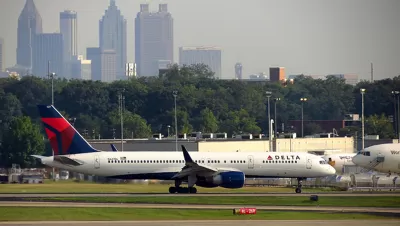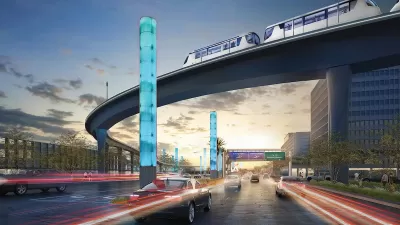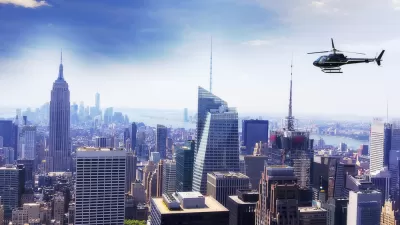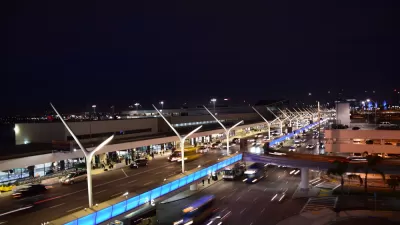A new study has found that just a handful of people are responsible for the majority of noise complaints directed toward airports.

Are expensive noise mitigations at airports being constructed just to keep a small number of complainers happy? That's what a new study from the Mercatus Center at George Mason University claims. Tim Fernholz of Quartz reports that the report authors found, among other things, that three callers made up 88 percent of complaints against Los Angeles International Airport in June and one caller made up 73 percent of complaints against Denver International Airport in all of 2015.
These aggrieved citizens may feel justified in reporting their displeasure, but their complaints can produce policies that leave everyone else holding the bag.
According to [researcher Eli Dourado], when the Federal Aviation Administration (FAA) makes rules to limit noise—based in part on complaints like these—it can prevent improvements in airport infrastructure, increase the cost of flights, and increase the carbon footprint of air travel.
FULL STORY: A handful of cranky people risk making air travel costlier and more polluting for everyone

Planetizen Federal Action Tracker
A weekly monitor of how Trump’s orders and actions are impacting planners and planning in America.

Maui's Vacation Rental Debate Turns Ugly
Verbal attacks, misinformation campaigns and fistfights plague a high-stakes debate to convert thousands of vacation rentals into long-term housing.

San Francisco Suspends Traffic Calming Amidst Record Deaths
Citing “a challenging fiscal landscape,” the city will cease the program on the heels of 42 traffic deaths, including 24 pedestrians.

Defunct Pittsburgh Power Plant to Become Residential Tower
A decommissioned steam heat plant will be redeveloped into almost 100 affordable housing units.

Trump Prompts Restructuring of Transportation Research Board in “Unprecedented Overreach”
The TRB has eliminated more than half of its committees including those focused on climate, equity, and cities.

Amtrak Rolls Out New Orleans to Alabama “Mardi Gras” Train
The new service will operate morning and evening departures between Mobile and New Orleans.
Urban Design for Planners 1: Software Tools
This six-course series explores essential urban design concepts using open source software and equips planners with the tools they need to participate fully in the urban design process.
Planning for Universal Design
Learn the tools for implementing Universal Design in planning regulations.
Heyer Gruel & Associates PA
JM Goldson LLC
Custer County Colorado
City of Camden Redevelopment Agency
City of Astoria
Transportation Research & Education Center (TREC) at Portland State University
Jefferson Parish Government
Camden Redevelopment Agency
City of Claremont





























